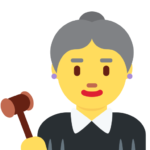Unions have historically been very supportive and helpful to teachers and other large groups of employees who may otherwise be exploited by employers. Unions are associations of employees who help and fight for their rights in their workplace. Education unions help teachers achieve fairness where they may otherwise be victims of division and mistreatment.
While they have their downsides, unions are largely beneficial to all employees who are members. Teachers unions will negotiate higher pay, fight for your rights, support and/or guide teachers, help with professional growth, and plenty more. Unions also continue to be a major political force by helping elect pro-labor candidates and writing legislation that helps protect employees.
1. Collective Bargaining
Collective bargaining is the negotiating process that takes place between the union and an employer. In education, the negotiation typically takes place between a union committee and a school district. Items unions negotiate for include wages/pay, training, healthcare, vacation and sick time, retirement, others benefits and workplace standards. The collective bargaining process can take months and even sometimes result in strike. However, the end result are typically positive for employees.
2. Unions Have Political Power
 An individual employee earning a middle class wage will almost never have any political say-so on their own. However, there is tremendous power and influence when 3 million education employees form a union and have a single voice. Unions such as the CSEA have enough influence in California to legislate an entire section of laws defining basic rights for classified employees.
An individual employee earning a middle class wage will almost never have any political say-so on their own. However, there is tremendous power and influence when 3 million education employees form a union and have a single voice. Unions such as the CSEA have enough influence in California to legislate an entire section of laws defining basic rights for classified employees.
Union Politics in a Post-Janus World
Janus is the short name for a supreme court case whose decision means employees pay union dues optional and not as a requirement. This decision creates speculation around the future of union power because potentially everyone can opt-out of their union. However, most unions are not seeing significant drops in enrollment and are doing quite well.
3. Experts In Benefits
Union members, particularly those involved in your local chapter, will know your benefits inside and out. Sometimes we don’t know that we are entitled to simple things, such as prep time, or 15 minute breaks, but we are. When you don’t know, you should go to your local chapter meetings and ask around. You will definitely get an answer.
4. Unions Fight For Your Rights When You Can’t
Things happen in our lives that are not in our control. Sometimes those things affect how we work, if we can work at all. In most jobs, if you cannot complete your job duties then you simply will lose your job. However, your ability to do that job is up to your employer in those situations. If you can still do your job, but you’re a little slower because of a permanent injury, is it fair for your employer to terminate your position? Unions help fill in these gaps for you and will try their hardest to make sure you don’t lose your job. Even when your employer thinks you become a burden.
The following are some situations where unions helped people fight for their rights.
Oxnard Campus Assistants Almost Lost Their Jobs
Oxnard School District decided to lay off 141 part time employees after the passage of AB2160. This bill would make those 141 employees full time and classified (unionized). However, the CSEA came in and successfully fought for these employees’ even though they were not yet unionized. OSD decided to allow everyone to keep their jobs and become full time.
My Story – Unexpected Illness
 I’ve been part of a union for over a decade and am currently a member of a union. Without the union, I would not have the job I had ten years ago and the job I have today. I never knew all of my rights as an individual in the work environment until I woke up one day after being unconscious and bedridden for one whole month. I questioned myself, “Why am I not working?” My employer informed me that I was not able to perform all of my job duties and had to resign.
I’ve been part of a union for over a decade and am currently a member of a union. Without the union, I would not have the job I had ten years ago and the job I have today. I never knew all of my rights as an individual in the work environment until I woke up one day after being unconscious and bedridden for one whole month. I questioned myself, “Why am I not working?” My employer informed me that I was not able to perform all of my job duties and had to resign.
At that time, I was a behavior therapist, I had to drive from one site to the next to give the proper therapy to clients. Unfortunately, my driver’s license was suspended and my employer felt I could not perform the “essential” duties which was transporting myself. It was my union rep who stepped up and fought for my rights. It took some time and enormous effort, but we negotiated and came upon an agreement, I worked there another six years prior to leaving for another job.
My Story – Bad Supervisor
I had to go through an Americans With Disabilities Act (ADA) accommodation process with my new job as a preschool teacher. One of the main functions of my job is to supervise students and keep them safe at all times. By law, the school has to meet the California Licensing Standards of a Day Care Center. One of those standards is teacher to child ratio. My supervisor was asserting that I was not able to perform my job functions because of my health condition. However, I reached out to my union, and they guided me through the entire accommodation process and acted as my legal representative against my employer. I was not only capable of completing my job duties, but my union rep and I basically proved that my supervisor was exaggerating the whole situation.
5. Unions Have Support/Guidance/Advice/Counseling helplines
Being part of a union is very beneficial, especially upon unexpected situations in the workforce. Employers may misguide and/or treat an employee unfairly. The employee knows he/she are receiving unfair treatment but do not know how to handle the situation, let alone speak up because of fear.
The union provides their members with phone numbers on finding the support, guidance, and advice needed to feel safe and secure in the working environment with ongoing conversations. They protect and allow the members to speak up and voice out their concerns to the employer without wrongful treatment.
6. Unions Give Teachers a Voice Without Major Consequence
Whether you are protesting working conditions or fighting back when being treated unfairly by a supervisor, your union will protect you! Not only will they protect you from retaliation, but will teach your how to conduct yourself in these situations. Once you know how to handle these negative situations independently, your confidence will grow and you will become a powerful and mature individual.
7. There is Recourse When You Are Being Treated Unfairly
Sometimes your boss goes on a power trip. Sometimes they’re making comments that make you uncomfortable. Worse yet, maybe they’re harassing you. There is no reason for you to take their nonsense day in and day out. Your union members and reps will show you the way to straighten the situation out. This typically leads to the employer telling your boss, or whoever it is, to straighten out. However, sometimes things escalate into a real legal battle. Stay behind your union’s back and they will have yours.
8. Legal Backing When Your Employer Might Discipline You
 Most education employers have a disciplinary process called write-ups. Getting written up is a back thing. There are two things for you to know here:
Most education employers have a disciplinary process called write-ups. Getting written up is a back thing. There are two things for you to know here:
- When someone tries to write you up out of the blue, make sure to state that you will not sign or acknowledge the write up without the presence of your union rep.
- When you’re suspicious your employer is going to discipline you, do not attend any meeting without your union rep. It is perfectly acceptable to ask if this is a disciplinary meeting, and state that you will only attend such a meeting with your union rep present.
9. Teachers Can Advocate For Their Students Instead of Worrying About Themselves
Those teachers who are part of a union have the right to not only protect themselves, but the right to also protect their students without fear. Teachers can advocate for their students to get the support required to help the students succeed in their education. To name a few, a teacher can ask for the following support for their students: behavioral therapy, speech therapy, occupational therapy, and physical therapy.
10. Collective Fundraising
As a union member, you are not just a member, you belong to a group of people who you call your “family”. As a family, we watch for each other’s safety and well-being. We help and support each other, especially through times of need.
Not only that, the unions will also organize fundraising events to spread awareness to its members and ask for their help to support a cause by donating one or two dollars to reach their goal. Believe it or not, the members are proud to help what they can to meet or exceed the goal that has been set for the fundraiser.
Union members are very caring and kind hearted people who are willing to donate to each other. They support and help each other in any way they can to make sure you are standing back on your own feet without the feeling of being alone and left in the dark.
